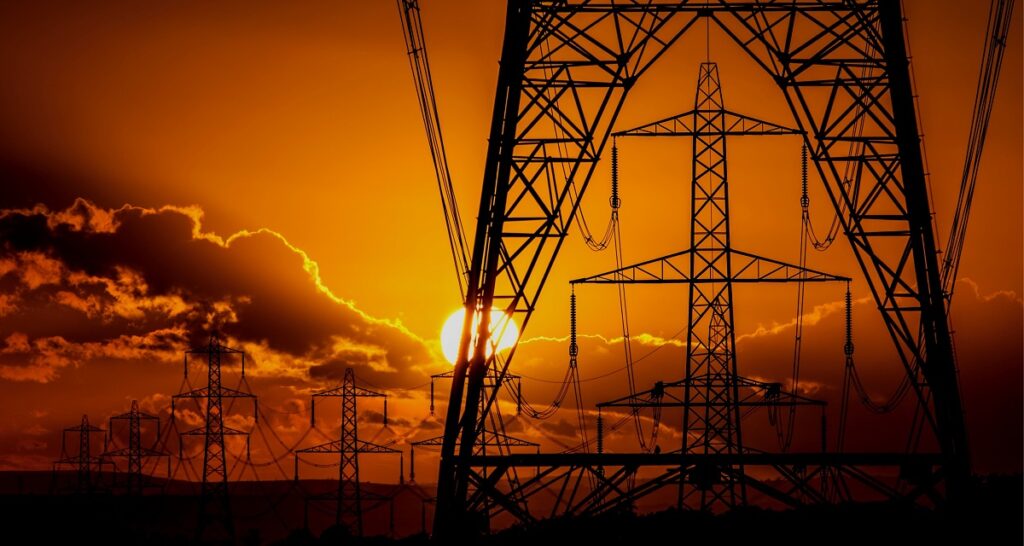Ofgem has confirmed the final investment package for network operators over the five years of the RIIO-ED2 period, setting total expenditure on average -11.8% below that submitted by the operators.
The RIIO-ED2 package (Revenue = Incentives + Innovation + Outputs for electricity distribution) sets the level of investment distribution network operators (DNOs) are allowed to make between 2023 and 2028.
This includes supporting the shift to more domestically produced green energy, helping to improve energy security as well as decarbonise by reducing Britain’s dependence on imported fossil fuels, as well as meet growing demand for electricity, as sectors such as heat and transport electrify to decarbonise.
“The investment set out today delivers value for consumers, safeguards security of supply and helps ensure Britain is no longer at the mercy of international energy prices or geopolitical events,” said Akshay Kaul, Ofgem interim director, Infrastructure and Security of Supply Group, adding that the set investment represented no increase in bills for consumers.
“The economics of energy have shifted with home-grown cleaner renewables like wind and solar energy proving cheaper than costly imported gas. Together with more nuclear and potentially hydrogen fuelled power, these renewables will contribute to a lower carbon energy mix, better protected from geopolitical events and energy price shocks.”
In December 2021, the six DNO’s submitted their final RIIO-ED2 business plans for review by the regulator, which itself then published its draft determinations in June 2022.
These determinations were dubbed “tough and stretching”, with a number of clarifications and resolutions identified by the DNOs at the time.
Taking into consideration the feedback from the network operators and other stakeholders, Ofgem has now set the final investment levels for the operators.
For example, Scottish and Southern Networks Distribution has been allowed £3.59 billion of baseline total expenditure over the five year period, a £300 million increase from the level set in the draft determinations in June, and a 21% increase in allowed expenditure from RIIO-ED1.
The final amount of expenditure are set as such:
|
DNO |
Submitted Totex (£m, 2020/21 prices) |
Allowed Totex(£m, 2020/21 prices) |
Difference |
|
Electricity North West |
1,890 |
1,720 |
-9.00% |
|
Northern Power Grid |
3,232 |
2,792 |
-13.60% |
|
National Grid Electricity Distribution |
6,893 |
5,977 |
-13.30% |
|
UK Power Networks |
5,523 |
5,179 |
-6.20% |
|
SP Energy Networks |
3,397 |
2,951 |
-13.10% |
|
Scottish and Souther Electricity Networks |
4,241 |
3,589 |
-15.40% |
|
Total |
25,176 |
22,207 |
-11.80% |
“We’ve carefully considered all the work that will be required and set the budget for the networks accordingly, driving the increase in capacity needed for net zero as well as delivering more reliable and resilient networks, at no extra cost to consumers,” said Kaul.
The cost of the upgrades is recouped through the network charge on consumer bills – part of the standing charges, currently set at 46.36p per day for electricity. This will not increase, remaining at an average rate of £100 per year per bill-payer.
Ofgem stated that this was possible to avoid increasing the network charge thanks to limiting network profits and increasing efficiencies.
It follows Unite the union hitting out at DNO profits recently suggesting there was “excessive profiteering” in the network sector, with major energy generators, suppliers and distributors together making profits of £15.8 billion last year alone.
This was rebuffed by the DNOs, with the Energy Networks Association dubbing the figures “fundamentally misleading”. Network companies are allowed by Ofgem to earn around 5% on their investments.
The association pointed to the RIIO-ED2 plans to invest over £25 billion, supporting 36,000 jobs as well as ensuring the “safe, sustainable, reliable networks” capable of facilitating Net Zero.
“Today marks the next step in our proposals to invest £3 billion in our communities, delivering jobs, apprenticeships, economic benefits – and ultimately, making sure our country meets Net Zero. All whilst keeping our portion of the bill broadly flat across the ED2 period, at 30p per day per household,” said Vicky Kelsall, SP Energy Networks’ CEO in response to the Final Determinations.
“We’re pleased Ofgem has recognised the strength of our plan by accepting 95% of the investment outlined and we will now review the detail to ensure it delivers for the customers and communities we serve.
“We look forward to working constructively with Ofgem to deliver the modern, efficient and high quality network needed to unlock growth across our regions.”
Now Ofgem’s Final Determinations have been published there will be a statutory consultation on the licence modifications required during December 2022, followed by licence and associated price control financial instruments confirmations in February 2023.
The RIIO-ED2 price control period will then begin on 1 April 2023.





